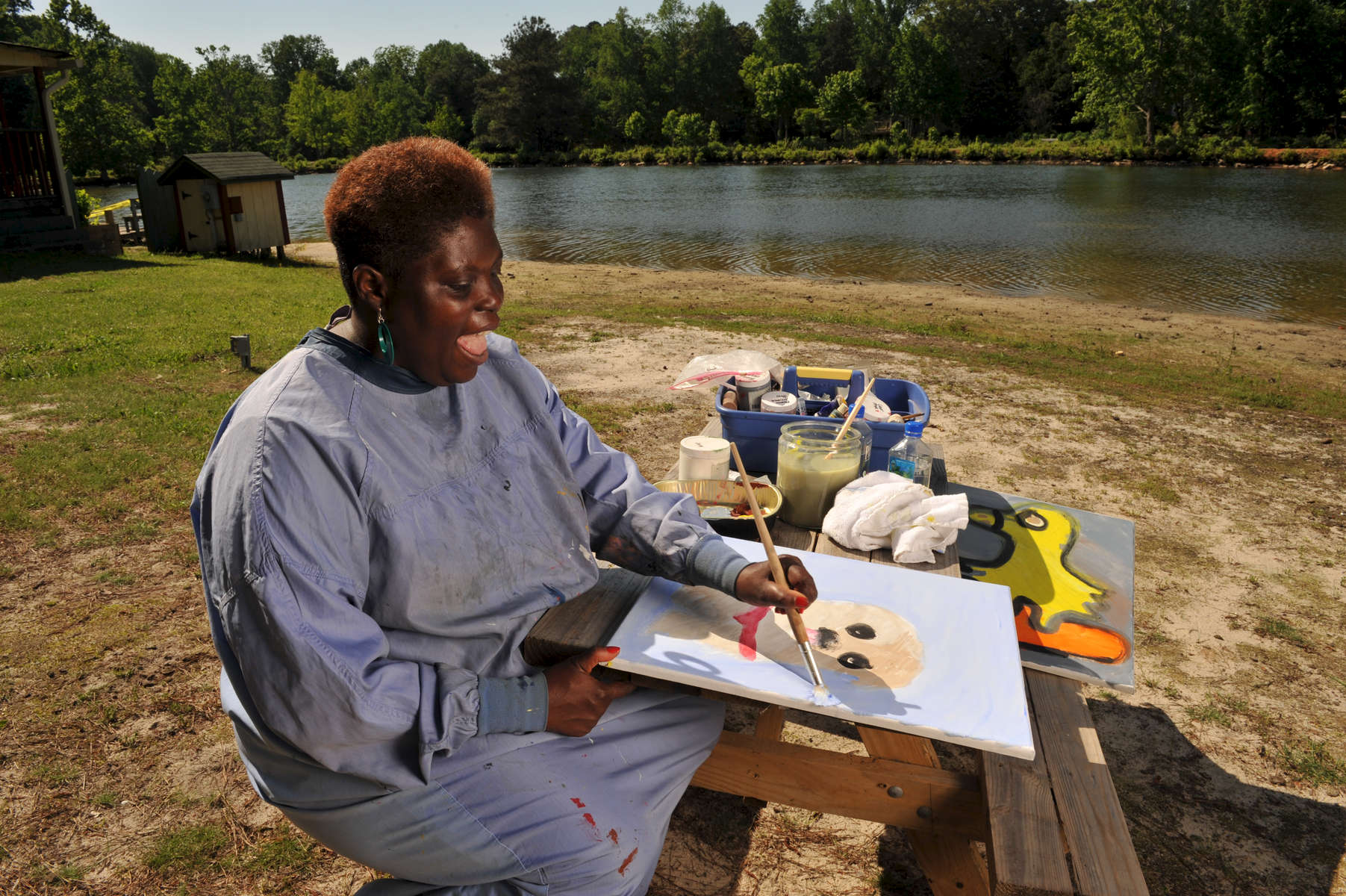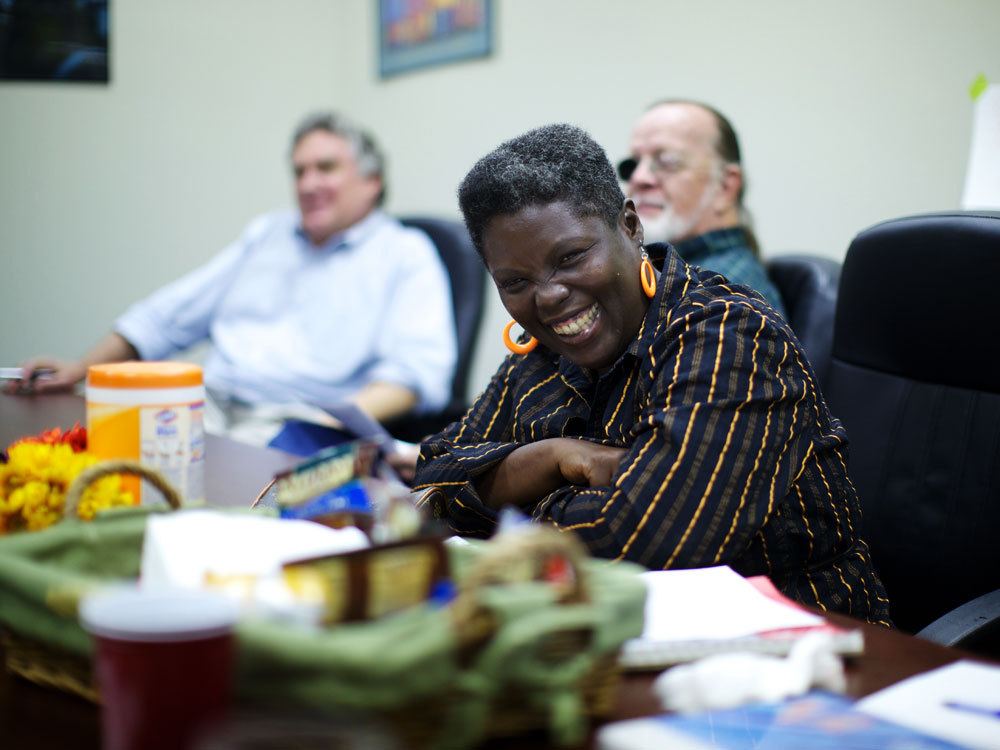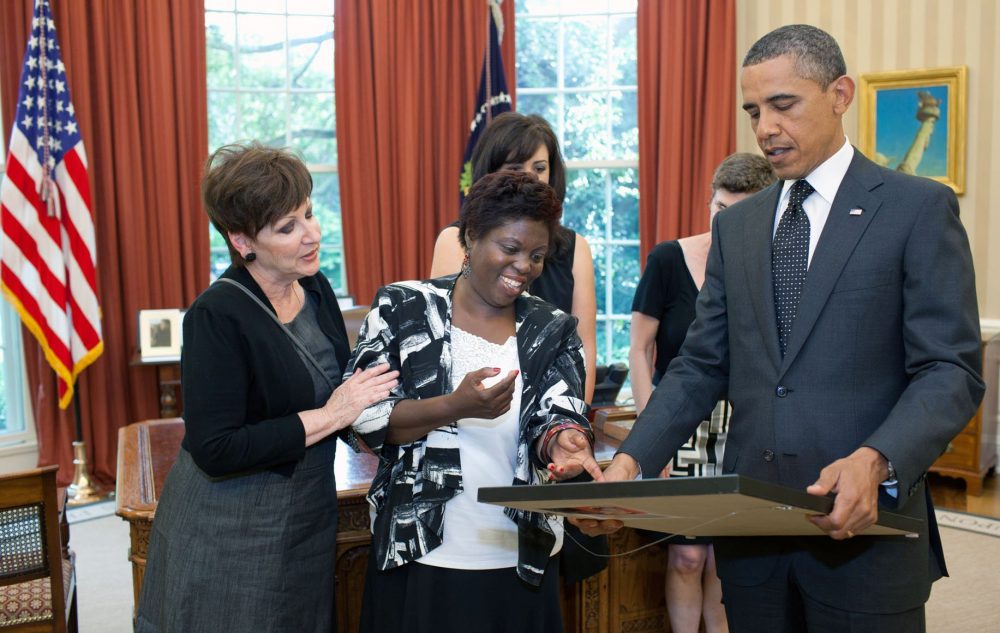
The Administration for Community Living, Office for Civil Rights, Office of General Counsel, and HHS leadership and staff join the disability community in mourning the loss of one of our nation’s greatest advocates, Lois Curtis, who passed away last evening. Her impact on our nation’s effort to achieve justice for all cannot be overstated. Because of her advocacy, millions of people with disabilities can live in their own homes and fully participate in their communities, with the services and supports they need.
Lois Curtis is remembered as “L.C.” in Olmstead v. L.C., the Supreme Court decision often regarded as the Brown v. Board of Education of the disability rights movement. Olmstead recognized that the Americans with Disabilities Act and Section 504 of the Rehabilitation Act protect the right of people with disabilities to live in their own homes and receive services in their own communities. Lois was a child when she was institutionalized for the first time and fought for almost two decades to be allowed to return home. She and Elaine Wilson, the other named plaintiff in the Olmstead case, worked with attorney Sue Jamieson of the Atlanta Legal Aid Society to convince the Supreme Court that their civil rights were being violated by being unnecessarily segregated in an institution when they could and wanted to live in the community.
An entire generation has grown up since the Olmstead decision – a generation that has always had the right to live, work and participate in their communities. Yet there are still far too many people who could – and want to – live in the community, but who are instead living in institutional settings because of a lack of access to the home and community based services they need. Disability advocates and federal agencies, including HHS, remain committed to enforcing the promise of Olmstead for people across the country who continue to be unjustifiably segregated, as Lois Curtis was decades ago.

“Lois Curtis and her steadfast advocacy has profoundly shaped the disability rights movement. Our community has lost one of our heroes,” said ACL Acting Administrator and Assistant Secretary for Aging Alison Barkoff. “I was lucky to have personally seen what a vital part of her community Lois became, as an advocate, artist, and beloved friend. Let us all carry on her work to ensure the right to community living for all.”
“Lois Curtis truly changed history,” said HHS General Counsel Samuel Bagenstos. “By fighting for her right to live in her own home, she established a precedent that has improved the lives of thousands of other people with all types of disabilities–and that precedent continues to underpin the fundamental principle that disabled people have a right to the services they need to live flourishing lives alongside their fellow members of the community.”
“Lois Curtis’ tireless advocacy and vision transformed the long standing right to live in the community into a reality for millions of Americans,” said OCR Director Melanie Fontes Rainer. “The Office for Civil Rights had the honor of working with Lois on some of our Olmstead cases over the years and is grateful for her work and partnership. Her work lives on here at HHS and across the country in advocacy.”
Although Lois never forgot her difficult years in institutions, she emerged as an empowered advocate who walked up the Supreme Court steps to hear her case argued as she was surrounded by supporters. After winning her struggle for independence, she lived a fulfilling life as a beloved community member in Atlanta and as a successful and renowned artist. She has been honored personally in the White House, by a host of disability and legal organizations, during Black History Month, and by the National Women’s History Museum. The Association of People Supporting Employment First (APSE) created the Lois Curtis Award in her honor. The award recognizes an individual’s personal achievement in advocating for inclusive, individualized, community-based employment and/or independent living.
ACL recognizes that the agency is part of the legacy of Lois Curtis. Her willingness to call out the injustice of segregating people with disabilities led first to the Olmstead decision, which then led the Obama Administration to create ACL, an agency devoted to fostering community living for all people with disabilities and older adults. In fact, ACL was given a mandate to serve within the federal government as an advocate for people with disabilities, and owes that privilege in part to Lois Curtis.


